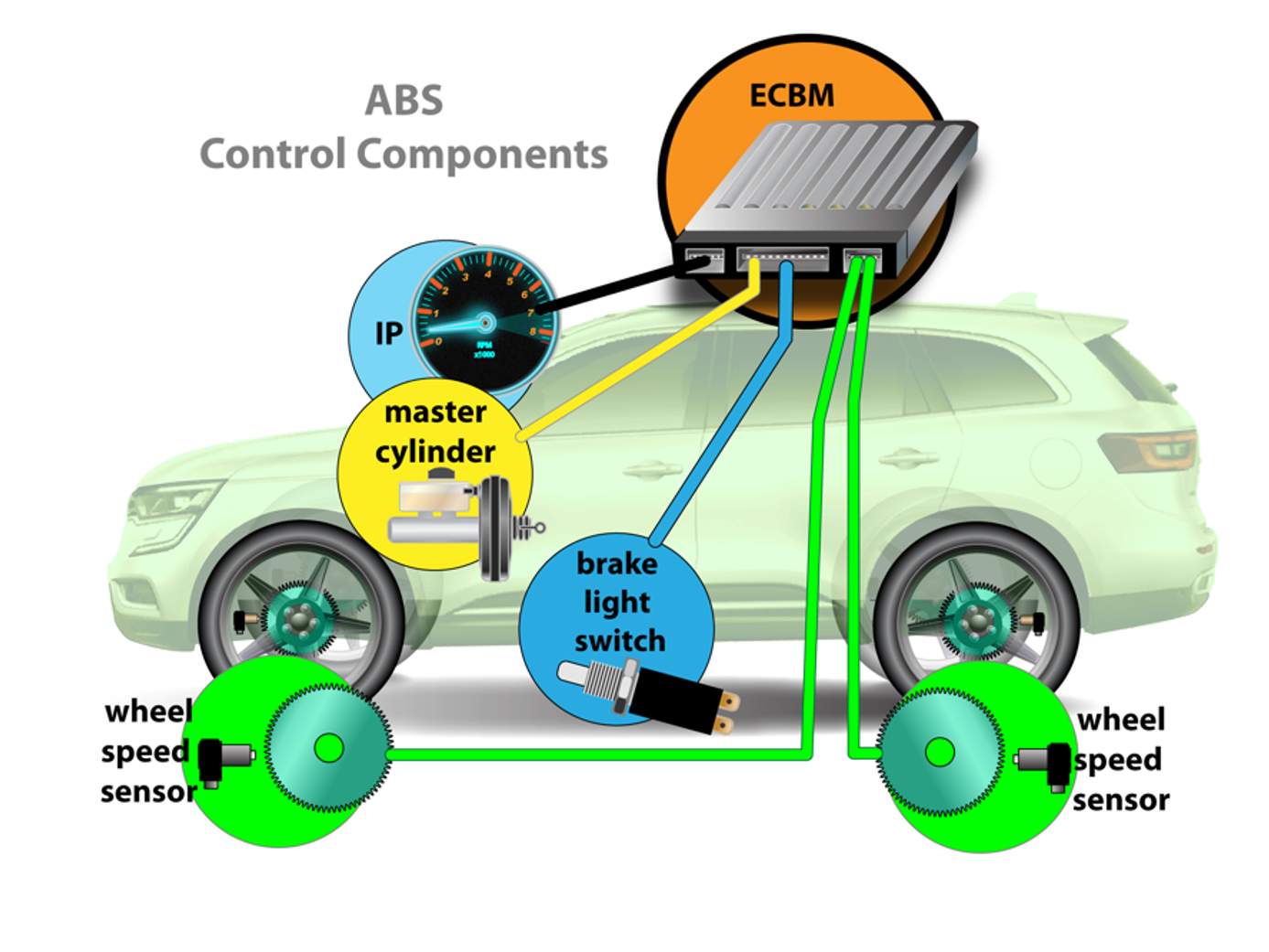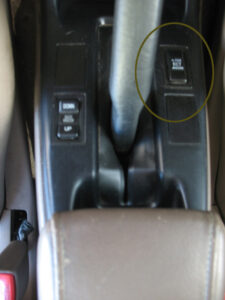When it comes to automotive safety technology, the Anti-lock Braking System (ABS) plays a crucial role. ABS sensors, also known as wheel speed sensors, are an integral part of the ABS system. But how many ABS sensors does a car have? Let’s find out.

Credit: www.shopownermag.com
Number of ABS Sensors
Most cars are equipped with four ABS sensors – one for each wheel. These sensors are responsible for monitoring the rotational speed of each wheel and sending this information to the ABS control module. By tracking the wheel speed, the ABS system can prevent wheel lockup during braking, ensuring better control and stability of the vehicle.
Types of ABS Sensors
ABS sensors come in two types – passive and active sensors. While the basic function of both types is the same, they differ in terms of technology and operation.
- Passive ABS Sensors: Passive sensors use a magnetic tone ring and a stationary coil to detect wheel speed. As the wheel rotates, the tone ring produces a magnetic field, which induces voltage changes in the coil. These voltage changes are then interpreted by the ABS control module to calculate the wheel speed.
- Active ABS Sensors: Active sensors, on the other hand, use an additional component called an exciter ring. This ring contains a series of magnets and is mounted on the wheel hub. As the wheel rotates, the magnets pass by the sensor, generating an alternating current (AC) signal. The sensor then converts this signal into a digital form, which is sent to the ABS control module.
Symptoms of a Faulty ABS Sensor
When an ABS sensor fails or malfunctions, several symptoms can indicate its faulty condition:
- Pulsating Brake Pedal: A faulty ABS sensor can cause the ABS control module to receive incorrect wheel speed information, leading to a pulsating brake pedal during braking.
- ABS Light On: If the ABS sensor is not working correctly, the ABS warning light on the dashboard will illuminate, indicating a problem with the ABS system.
- Lack of Active Safety System Functionality: With a faulty ABS sensor, the active safety systems, such as traction control and stability control, may not function properly. This can affect the overall stability and control of the vehicle.
- Increased Stopping Distances: Faulty ABS sensors can cause the ABS system to miscalculate braking distances, resulting in longer stopping distances and decreased overall braking performance.
- Brake Pedal Pulsation: When the ABS sensor fails, it can lead to erratic brake pedal pulsation during braking, making it harder to maintain control of the vehicle.
Replacing ABS Sensors
If you suspect a faulty ABS sensor in your vehicle, it is essential to have it diagnosed and replaced by a qualified mechanic. The replacement cost can vary depending on the make and model of your car and the location of the sensor.
Frequently Asked Questions On How Many Abs Sensors Does A Car Have
How Do You Tell Which Abs Wheel Sensor Is Bad?
Each wheel on a car has an ABS wheel sensor. These sensors are responsible for detecting the speed of each wheel and are crucial for the proper functioning of the ABS system. If one of the ABS wheel sensors is faulty, you may experience symptoms such as an illuminated ABS light, increased stopping distances, or brake pedal pulsation.
It’s important to have the faulty sensor diagnosed and replaced to ensure safe driving.
Is There An Abs Sensor On Each Wheel?
Yes, there is an ABS sensor on each wheel of a car. ABS sensors, also known as wheel speed sensors, are crucial components of the ABS system. They are responsible for detecting the speed of each wheel. There are two types of sensors: passive and active.
Can You Drive With A Broken Abs Sensor?
Yes, you can drive with a broken ABS sensor, but you may not be able to stop under control. The ABS system allows you to steer while braking, but if the ABS sensor is not working correctly, the brakes will still work but the wheels may lock up, causing you to slide in a straight line.
What Happens If One Abs Sensor Is Not Working?
When one ABS sensor is not working, it can lead to several issues. These include a pulsating brake pedal, increased stopping distances, and brake pedal pulsation. The ABS control module may be tricked into thinking the vehicle is sliding on a slick surface.
It is important to get the ABS sensor fixed to ensure proper braking and control.
How Many Abs Sensors Does A Car Have?
A car typically has one to four ABS sensors, depending on the type of braking system. Each sensor is responsible for monitoring the speed of a specific wheel.
Conclusion
In conclusion, most cars have four ABS sensors, one for each wheel. These sensors play a crucial role in ensuring the safety and stability of the vehicle by preventing wheel lockup during braking. If you experience any symptoms of a faulty ABS sensor, it is vital to have it inspected and replaced as soon as possible to maintain optimal braking performance.






